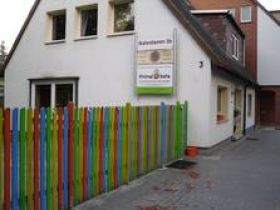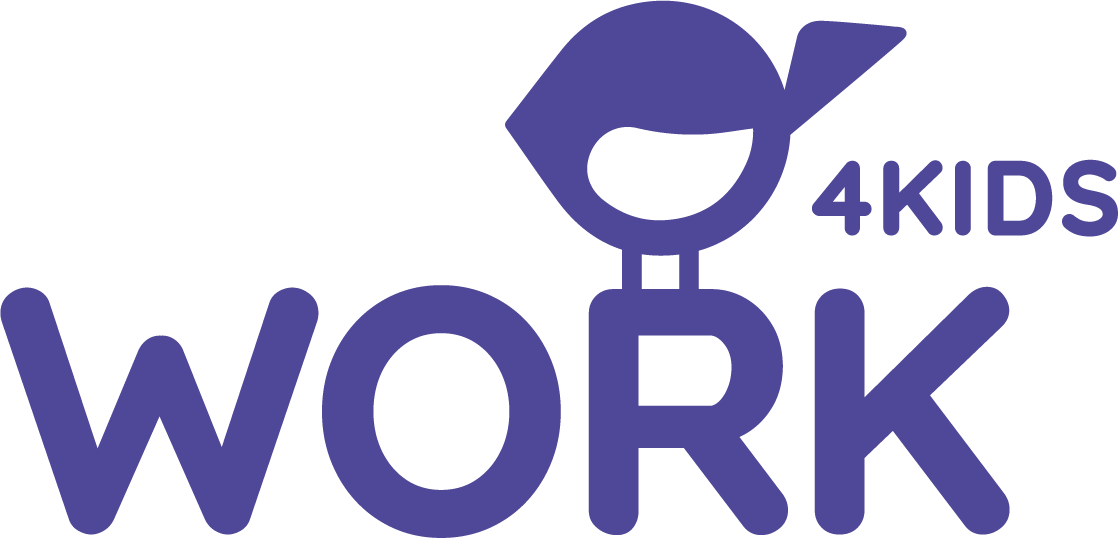Basics
The pedagogical work in the KITaZirkel e.V. is primarily based on the various educational areas. The areas are divided among the employees and everyone is an expert in this area and undergoes further training in the relevant areas.
Our educational areas are:
- music and rhythm
- creativity encounter with nature and things
- sensory perception
- movement and play
- language
Music and rhythm
Children of all ages need music, dance, expression and play! Rhythm combines these areas as a holistic educational offer in early childhood education. Even the smallest children dance and sing with elementary joie de vivre. The affinity and fascination emanating from music and dance are ultimately independent of culture, gender, age, intelligence and also of a person's deficits in perception or disabilities. Music is seen as a universal language, which small children, who are often not yet able to use the word language, use. In our day-to-day work, we keep finding:
Children are only too happy to be captivated and moved by music! Music, games and dance are not only important for children in terms of developmental psychology, but are also of great importance as a cultural building block. The identification with one's own culture and its typical children's songs is of importance for the self-image and for the integration that should not be underestimated. And remembering well-known children's songs, such as "Bunny in the Pit" or "Sleeping Beauty" creates a feeling of security in everyone. Songs and musical games create a sense of togetherness in any group or culture.
Creativity
What makes messing around with porridge or food creative is the driving force behind action: the children enjoy the sensual experience and become curious about the world. Toddlers don't just become creative, they are creative by themselves. You just have to let them do what they do and encourage them to do so. Children experiment, try out and find new and original possibilities - that is exactly what creative action is all about.
The children need an environment in which they feel comfortable and can affirm themselves without pressure to perform so that they can develop their imaginations to the full. Various materials encourage the children to deal with them and to explore them with all their senses. Children are not interested in visible things, but rather in exploring the materials. First of all, they are concerned with smearing, muddling, kneading, dabbing and splashing. Children are not result-oriented; they are concerned with the experience. Only later does something emerge that children also want to name. A big side effect of varied stimulation is that creative children have more self-confidence and less fear. These children are more lively and social, negotiating with others, listening, accepting other ways and appreciating their fellow players. They also have a greater power of concentration and find solutions faster.
Encounter with nature and things
With their thirst for knowledge, their striving to discover and experience new things, children have many experiences every day and reinvent their environment a bit every day. We would like to support our children in this area in pursuing their joy of discovery and experimenting with materials from nature and their environment.
Together with the educational staff, the children experience their direct environment and understand the natural conditions of our nature. This important educational process is supported by various offers. For example, the children learn about and appreciate the growth process of food by planting fruit trees or creating a raised vegetable bed. Our flower beds in the garden provide an important habitat for insects and reptiles and teach the children to protect even the smallest creatures in our ecosystems. Accompanying discussions of our observations and the documentation of what we have experienced is also an important part of the pedagogical work. The materials and results of our projects are then exhibited and appreciated for everyone in the group rooms. Through excursions we want to expand the children's spaces of perception, for example by visiting green areas, parks, the zoo or farms. Of course, shopping together in the supermarket can also be a reason to take the kids out. We also take an active part in road traffic and playfully learn about the various traffic regulations. Our offers and campaigns should not be about working out precise scientific explanations, but about experiencing and understanding phenomena from the children's immediate lives. The area of encounters with nature and things offers a variety of different subject areas, although we always focus on the current needs of the children. Our goal is for the children to experience their environment with all their senses and in a variety of situations, so that they develop a relationship and an understanding of the world they live in.
Sensory perception
Our senses create the conditions for understanding, development and learning. The senses are divided into two areas, the far sense, which includes seeing and hearing, and the near sense, which includes all other senses. Tactile perception is one of an infant's first forms of communication and underscores the importance of stimulating and nurturing the senses. Children initially only understand their environment through their senses by smelling, tasting, feeling, seeing, hearing and moving. They want to run, jump, understand and discover the world. The game ideas and offers in the field of sensory perception range from tactile games and noise memories to barefoot paths and much more. In the snoezel rooms or cozy corners of the facilities, relaxation offers such as dream trips and touch games with various materials are also carried out. Basically, we always try to appeal to all senses in everyday life and to train together with the children.
Movement and play
Everything children learn, they learn through movement. The younger a child is, the more it is dependent on getting to know itself, others and its surroundings through perception and movement. Even infants explore their environment by reaching for objects and putting them in their mouths, touching them and dropping them. The child gains experience of material properties and thus grasps the first connections. With increasing age, physical and motor skills are added and combined. This is how a child crawls to stand and then run and hop. Exercise is good for you and has a positive effect on the development of your personality as a whole. It is, so to speak, the motor for body, soul and spirit. It strengthens the body and keeps it healthy. Children who can live out their natural urge to move find inner peace and balance, develop dexterity, creativity and an alert mind. Even the very youngest enjoy the attention and physical contact with adults during romping games. More lively movements, such as a sing-along, stimulate the imagination and support language development as the child can speak along with the text and thus learn to understand the meaning of the words. Our special offer in Wichtelhagen, Wichtelbude and Krümelhausen day-care centers is the weekly yoga class.
Speech and language development
With the help of various communication options - whether verbal or non-verbal - children can communicate, make themselves understood and get in touch with their environment. Thus, language and communication with each other is not only the oldest, but also one of the most important human cultural techniques. We see our educational mission in this area essentially as supporting and supporting the children according to their individual requirements in a resource-oriented and everyday-integrated manner. In the city of Langenhagen, the regional concept serves as a starting point for quality assurance and quality development and describes goals and methods. It is continuously updated. In coordination with the carriers, the sample text can be used as a reference (and protection in the case of an examination by the state):
The city of Langenhagen has developed its regional language education and language promotion concept for the qualification of pedagogical specialists in day-care centers in coordination with all providers. The structure of the content and the structure of this concept take into account the latest findings from science and practice. They correspond to the recommendations for action "Language education and language support" of the Lower Saxony orientation and education plan. The regional language education and language promotion concept of the city of Langenhagen is trend-setting for all daycare centers in Langenhagen and is regularly updated. In addition to the everyday integrated language education and support, the children are offered targeted support in language acquisition (§ 18 KiTaG) in the last year before school. The language level survey, which is carried out at least 1 ½ years before starting school, serves to determine the current level of each individual child.
Through the spatial concept of the day care center (e.g. reading corner or role play area) as well as activities and offers (rituals such as songs, themed stories, finger plays, rhymes, everyday situations, etc.), the educational staff encourages the children to communicate with the environment within the scope of their possibilities.








